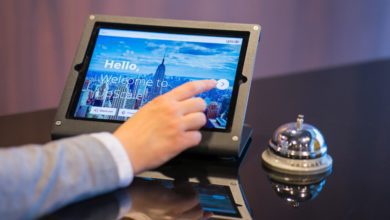Adopting flexible working at hotels

The hospitality industry is facing uncertainty ahead, as the outcomes and impact of Brexit are still unknown. Staffing concerns are continuing to grow unabated in the face of a very unclear road ahead for anyone not born in the UK, which in the hospitality industry, accounts for a very significant proportion of the workforce.
Amongst these uncertainties, there are a number of brands who are taking matters into their own hands and applying new approaches to their employment strategies. The successful UK hotel chain, Travelodge, is doing just that. Recently, the company announced plans to open 100 new hotels across the country, creating 3,000 new jobs. Many of these new jobs are aimed at parents who want to return to work and make extra money around school hours. In uncertain times, it makes sense to be more adaptable and flexible. With Travelodge beginning to implement this approach, it makes sense for other brands to consider embracing flexibility to retain and attract staff.
Workforce worries
To understand the industry’s concerns, we conducted some research amongst managers working in the sector. This research showed that 3% of managers were concerned that they would be forced to close their business as a result of Brexit. When we spoke to the staff employed by these managers, one in ten said that they were planning on leaving the UK because of Brexit.
It is now more important than ever that hospitality managers are listening to their employees concerns and start implementing processes which will help achieve both business goals but support the workforce too. 29% of managers that we surveyed had already begun to change their approaches to hiring as they look to expand their workforce markets, with some beginning to hire older employees or parents. The number of companies doing this looks as if it will increase over the coming months.
Flexible solutions
Travelodge are in the process of embracing the flexible approach and opening themselves up to people previously unable to work because of their personal schedule. There’s no reason that smaller organisations should not consider this too. We now work in a time when allowing employees to work more flexible hours is a strategic business decision rather than merely an optional perk.
When in 2018, a data scientist at Facebook left her job after she was denied a flexible working request she made in order to spend time with her newborn baby, a bias against working parents in office environments and a lack of appreciation for the work they can do was exposed. Managers have a responsibility not only to provide the right level of service to their customers, but also to their employees – whether they work full-time or part-time.
Flexibility also widens the pool of talent for businesses. There are people of different ages with different skills who want to work but need to have a flexible option to work around their life.
The majority of employees in the hospitality industry work in shifts, as this pattern of working provides employers with the kind of flexibility necessary for managing a number of sites using several employees, each with a variety of different skills. Surveys have found that flexible working schemes help to reduce workplace stress and actually increase productivity in many cases, providing a compelling case for the change. In the wake of Brexit and concerns around staffing, flexible working can be a way of attracting and retaining talent in the hospitality sector.
Making flexibility work
Technology has and can continue to play a vital role in transforming the way that hotels manage their staff and operate more generally. Software and applications built on the cloud have enabled increased flexibility for businesses across all industries, from hospitality through to healthcare. It has affected everything from document sharing to office-management to scheduling and rostering on the move.
Technology designed for improving business functions can increase the contact between managers and their teams; it also speeds processes to ensure that customers receive the service they were offered and means that teams can communicate more easily to avoid mistakes.
Cloud-based software consequently contributes towards a more efficient, more communicative, and less stressful work environment. Letting managers and other team members know about swapped shifts and other times when certain employees won’t be on site becomes both quicker and easier due to the connection that the Cloud provides. Technology can also help to foster better communication within a workforce, so employees can easily contact their colleagues and employer, helping to create a more open and transparent company culture.
With large chains such as Travelodge changing their business models in reaction to greater social and economic change, a case is being made for businesses of all sizes to do so. A commitment to flexible working not only shows your employees that you’re considering their needs beyond their work, it also shows an awareness of the need for a reaction to the changes currently taking place. With the right planning and the right infrastructure, it could revolutionise a business.
By Christian Brøndum, CEO of Planday









